ISS-4228-1415 Population People and Resources
advertisement
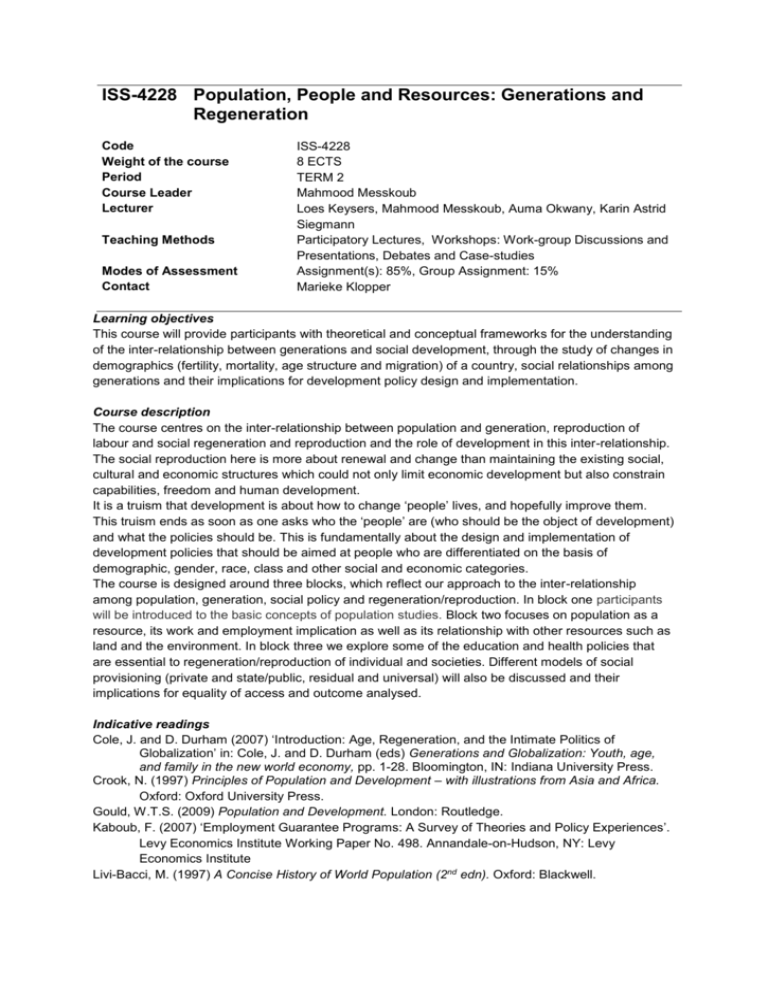
ISS-4228 Population, People and Resources: Generations and Regeneration Code Weight of the course Period Course Leader Lecturer Teaching Methods Modes of Assessment Contact ISS-4228 8 ECTS TERM 2 Mahmood Messkoub Loes Keysers, Mahmood Messkoub, Auma Okwany, Karin Astrid Siegmann Participatory Lectures, Workshops: Work-group Discussions and Presentations, Debates and Case-studies Assignment(s): 85%, Group Assignment: 15% Marieke Klopper Learning objectives This course will provide participants with theoretical and conceptual frameworks for the understanding of the inter-relationship between generations and social development, through the study of changes in demographics (fertility, mortality, age structure and migration) of a country, social relationships among generations and their implications for development policy design and implementation. Course description The course centres on the inter-relationship between population and generation, reproduction of labour and social regeneration and reproduction and the role of development in this inter-relationship. The social reproduction here is more about renewal and change than maintaining the existing social, cultural and economic structures which could not only limit economic development but also constrain capabilities, freedom and human development. It is a truism that development is about how to change ‘people’ lives, and hopefully improve them. This truism ends as soon as one asks who the ‘people’ are (who should be the object of development) and what the policies should be. This is fundamentally about the design and implementation of development policies that should be aimed at people who are differentiated on the basis of demographic, gender, race, class and other social and economic categories. The course is designed around three blocks, which reflect our approach to the inter-relationship among population, generation, social policy and regeneration/reproduction. In block one participants will be introduced to the basic concepts of population studies. Block two focuses on population as a resource, its work and employment implication as well as its relationship with other resources such as land and the environment. In block three we explore some of the education and health policies that are essential to regeneration/reproduction of individual and societies. Different models of social provisioning (private and state/public, residual and universal) will also be discussed and their implications for equality of access and outcome analysed. Indicative readings Cole, J. and D. Durham (2007) ‘Introduction: Age, Regeneration, and the Intimate Politics of Globalization’ in: Cole, J. and D. Durham (eds) Generations and Globalization: Youth, age, and family in the new world economy, pp. 1-28. Bloomington, IN: Indiana University Press. Crook, N. (1997) Principles of Population and Development – with illustrations from Asia and Africa. Oxford: Oxford University Press. Gould, W.T.S. (2009) Population and Development. London: Routledge. Kaboub, F. (2007) ‘Employment Guarantee Programs: A Survey of Theories and Policy Experiences’. Levy Economics Institute Working Paper No. 498. Annandale-on-Hudson, NY: Levy Economics Institute Livi-Bacci, M. (1997) A Concise History of World Population (2nd edn). Oxford: Blackwell. Mkandawire, T. (ed.) (2004) Social Policy in a Development Context. Basingstoke; Geneva: Palgrave Macmillan; UNRISD.
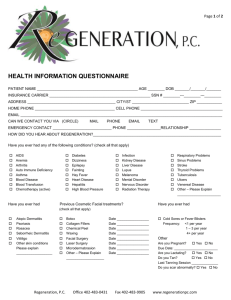
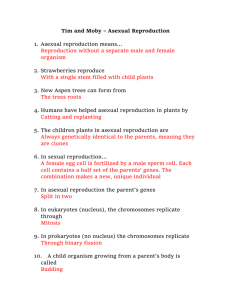

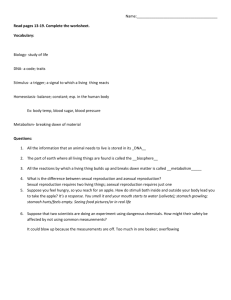
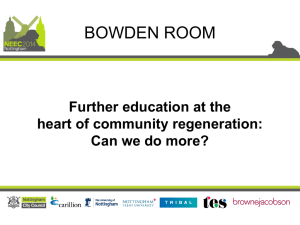


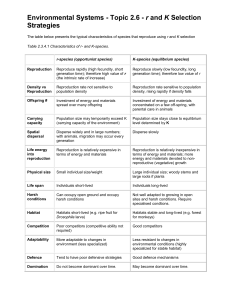
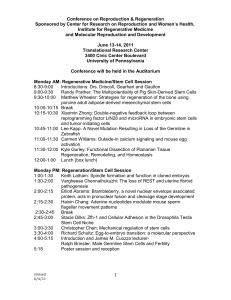
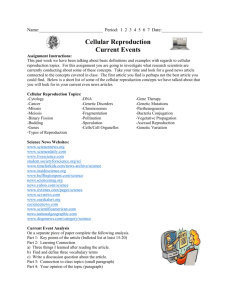
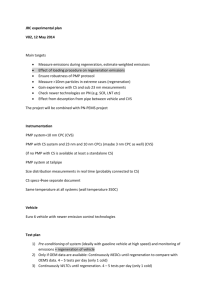
![genomic equivalence and the cytoplasmic environment [07]](http://s3.studylib.net/store/data/007143503_1-7cb34a5975f09fca3cf6aa6e7532d081-300x300.png)